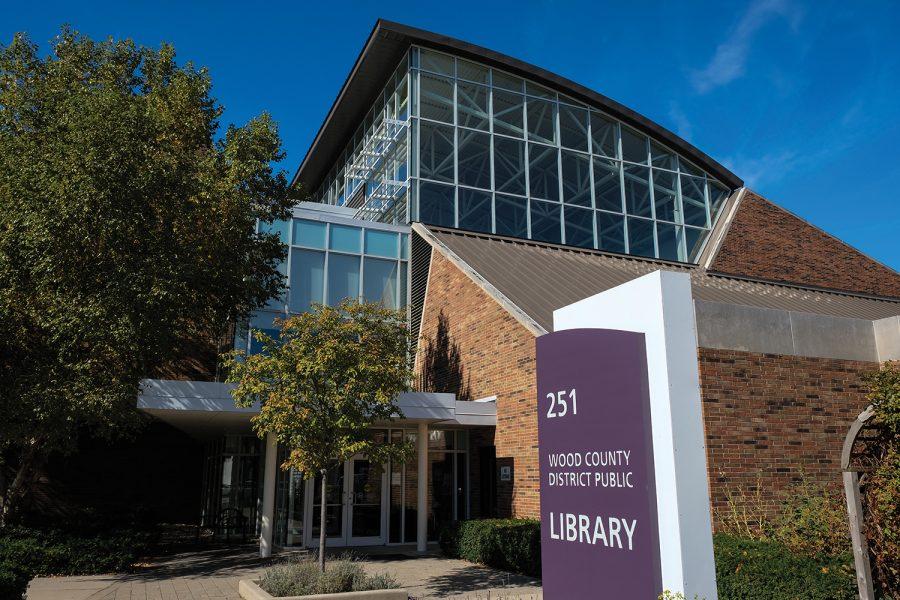As the national population becomes larger and more diverse, it’s also aging, according to Nancy Orel, chair of the University gerontology department.
This aging is largely from the “baby boomers” born between 1946 and 1964. According to history.com, 1946 had record high birth rates in the United States, up 20 percent from 1945. By the time the trend tapered off in 1964, there were over 76.4 million baby boomers, making up almost 40 percent of the United States’ population.
This baby boom generation is affecting younger generations economically, politically, socially and “in all ways imaginable,” Orel said.
Starting Jan. 1, 2011, and continuing for roughly 20 years, 10,000 individuals will turn age 65 every day, Orel said. Those turning age 65 become eligible for Social Security and healthcare through Medicare.
“When (Social Security) was first enacted in 1935, people at best only lived to be maybe 60 years of age, but they weren’t able to collect until they’re 65,” Orel said.
A female now can expect to live to be 84 years old, which means if she starts collecting at 65, a woman could live on Social Security for almost 20 years.
Because the government recognized that the population is living longer, current college-aged and younger generations will have to wait longer to collect social security, Orel said.
Andrea Schneider, a University lecturer of economics, said the government is trying to convince citizens to pay into Social Security as long as possible by incentivizing a higher percentage of benefits for waiting longer to retire.
Even for the baby boomers, receiving full Social Security amounts isn’t enough to depend on after retirement.
“It was never meant to be the only source of income,” Orel said. “It’s supposed to be part of a three-legged stool.”
The other two legs of Orel’s stool include private savings and company pension.
Schneider said baby boomers would ideally have also invested in government bonds, the stock market, mutual funds, money market accounts and several other opportunities, but because of this, older generations are hesitant to spend, especially because the economy hasn’t fully turned around.
“They’re not getting a lot of return on their investments right now,” she said. “They’ve put money into savings accounts or other financial assets and are relying on those to maybe live off the interest or live off the returns on those investments, and they’re just not there.”
For younger populations, saving can be even more difficult, as they may have fallen out of the habit of investing.
“You would hear people all the time investing in certificate of deposits (CD’s), and getting like 6, 7 percent interest,” Schneider said. “Well, if you’re only getting 0.5 percent interest on it, you’re not going to put your money in that, and if you’re not putting your money in it, you’re most likely spending it. Then you’re relying upon your Social Security.”
While younger populations may need to wait longer to collect full Social Security benefits, Orel finds it interesting that more and more people want to retire earlier. She said that means younger generations need to start planning earlier.
Part of the planning process for younger generations might take some incentive since they aren’t keen on saving. This incentive could come in the form of working for companies with competitive packages.
“If unemployment continues to fall to lower levels, that puts more bargaining power in the hands of the employee,” Schneider said.
If companies are not offering competitive packages, they lose employees, and it’s expensive to hire and train new employees. In that case, businesses will want to retain as many of the younger-generation workers replacing baby boomers, partially through packages offering better retirement plans.
Junior economics major Michaela Pendergrass said other retirement plans should be enough.
“I’ve pretty much given up all hope of receiving my Social Security, and honestly, I should be fine without it,” she said.
While she has no specific plans for how to enact her views, Pendergrass thinks Social Security should only be collected by those who barely scrape by in life, unable to save or invest extra money for retirement.
Baby boomers affect younger generations through political involvement revolving around Social Security as well. Older adults are the ones that vote the most, meaning they have the greatest voice and their concerns are most known, Orel said. She credited the slow changes to Medicare and Social Security to this high political activity in older adults.
“Most politicians recognize that it would be political suicide to reduce social security benefits or to reduce defined benefits through companies,” she said.
While younger generations may have to wait to collect Social Security or not get it at all, both Orel and Schneider said as older adults leave the workforce there will be more positions for younger individuals.
Bowling Green City Personnel Director Barbara Ford said 92 of the 310 total city employees were born during the baby-boom generation. Retirements among city employees are rising slightly every year as well. In 2013, four city employees retired, while seven retired in 2014 and nine retired in 2015. The city is anticipating six retirements in 2016, so far. These jobs will most likely need replacements from younger members of society.
Orel referenced the Bureau of Labor Statistics, which said most jobs that will be available in the next 20 years do not exist currently. So while many may be retiring, that doesn’t necessarily mean those same jobs will be filled with graduating college students, but some new jobs may be created that young individuals will need to fill.
At the same time, though more jobs will be available for graduating students as baby boomers retire, the benefits are not as great for the company. Orel said losing the “wealth of knowledge” seasoned workers have is a problem to begin with, but when multitudes of employees with that knowledge all begin retiring at the same time, it’s even worse.
At the University specifically, Orel has noticed a large number of faculty and staff retiring, which she said has the negative consequences of “losing years of research, years of experience teaching and years of connections with the community.”
The University, along with all other employers losing baby boomers, is also losing mentors for incoming young populations. Schneider said if firms are hesitant about new hires, the rising retirement could give them the push to replace a seasoned, high salary worker with a younger employee, however.
A baby boomer’s social life also reverts back to affecting younger generations economically. One of the main social connections for older adults comes from the place of employment. Upon retirement they lose a major sense of social connection “which psychologically and emotionally has ramifications,” Orel said.
Aside from losing a social source as a result of retirement, many also may lose the sense of purpose they find in their occupations.
“Luckily most older adults, at least the baby boomers, are reinventing themselves…so they’re taking on a different career,” Orel said.
While some are taking on different careers as a way to reinvent themselves, others change careers after retirement because they couldn’t actually afford retirement, according to Schneider. She said some may even be able to afford it but still begin a new career because they are still too afraid to spend their savings. With the low interest rates, the money they spend isn’t replenishing itself. Once it’s gone, it’s gone.







